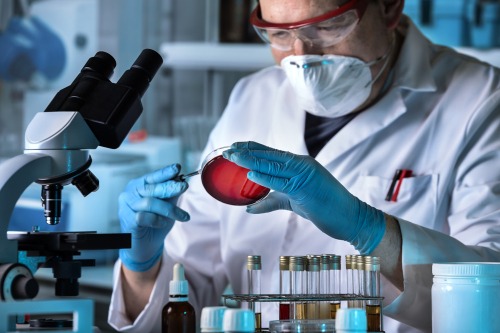
Beginning with $20 million this year, the United States Department of Health and Human Services (HHS) will commit up to $300 million to support antimicrobial resistant (AMR) infection research conducted through the Combating Antibiotic-Resistant Bacteria Biopharmaceutical Accelerator (CARB-X) over the next decade.
Announced last week, this investment will support the world’s largest public-private partnership for the early development of AMR products. So far, CARB-X has funded 92 such projects since its founding in 2016. CARB-X and HHS consider antibiotic resistance a major cause for concern, given its ability to complicate the response to public health emergencies.
“Antibiotic resistance continues to grow at an alarming rate worldwide, killing an estimated 1.27 million people each year and affecting the U.S. and global economies,” Dawn O’Connell, HHS Assistant Secretary for Preparedness and Response, said. “To save lives and keep pace with that growing threat, we need to accelerate the development and delivery of innovative and effective antibiotics. CARB-X partners are responding to this challenge by reinvigorating the pipeline of early-stage AMR candidates to help fight deadly infections.”
The new funds slide onto a total of $503 million invested into the CARB-X initiative since its creation. Of those involved, the largest funders have to date been the Biomedical Advanced Research and Development Authority (BARDA), with $200 million, and the global charity Wellcome, with $155 million, although other supporters include governments and the Bill & Melinda Gates Foundation.
So far, 11 antibiotic-resistant infection-focused products supported by CARB-X have advanced to the first in-human clinical trials. More are expected to begin later this year. Another four have progressed to validation and verification, leading to clinical trials. Another pair have gone on to later-stage development, supported by BARDA.
“We are grateful for the leadership and commitment demonstrated by BARDA, NIAID, and Wellcome in addressing the global challenge of AMR bacteria,” Kevin Outterson, executive director of CARB-X and professor of law at Boston University, said. “We now know that AMR kills more people each year than HIV or malaria, and a similar number to tuberculosis. With today’s funding announcements, CARB-X will continue to support early-stage research and development for new antibacterial therapies, preventives, and diagnostics.”
In addition to the new funds announced by HHS, Wellcomewill also up its funding, providing another up to $70 million over the next three years to help CARB-X.




